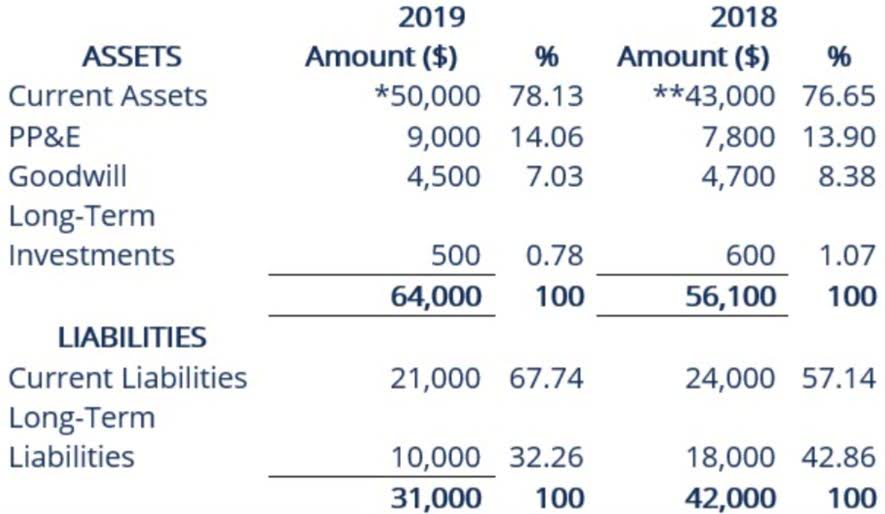
Contract workers are also typically required to pay self-employment taxes. If you don’t receive a 1099-INT and you think you 1099s are used should, contact the financial institution you expected to issue you one. If you still haven’t received the form by the end of February, you can contact the IRS for assistance. If you never receive your 1099-INT, and Tax Day is looming, you could check your statements from the entity that paid you interest.
- In fact, most of the time these forms are filled out for the buyer via the closing process.
- It also allows the IRS to have evidence of certain income you received during the tax year.
- That’s why we compiled everything you need to know about the 1099 Form in this blog.
- Enter the name, address, and telephone number of the person who is filing Form 1099-S.
Common types of 1099 forms
- 1099 forms are federal income tax information forms from businesses and other institutions to document certain financial transactions conducted during a tax year.
- Citizen and they work for you inside the US, you must file a 1099-NEC, assuming the transaction meets the other filing requirements.
- This is the form you’ll receive if you took any distributions from your health savings account, Archer medical savings account or Medicare Advantage.
- This includes money earned from gig work, interest, a real estate sale or a distribution from a tax-leveraged account, such as a health savings account.
- Form 1099-R reports the distribution of $10 or more of retirement benefits from pensions, annuities, or other retirement plans.
Here’s what to know about the different types of 1099 tax forms, how to confirm you’ve received all your paperwork, and tips for an easier filing season. Every year by mid-February, there’s a good chance you’ve received one or more 1099 tax forms. But what are they for, and why do you need to pay attention to them? The main difference between an employee and an independent contractor is that one is a payroll worker, and the other is a non-payroll worker. Suppose you are in business for yourself and provide services to other companies or people.
Pay your team

However, there are a few other professionals and entities that also get a 1099 that you may not know about. It’s specifically used for reporting capital gains on real estate transactions. The purpose of IRS Form 1099-S is to ensure that sellers are reporting their full amount of capital gains on each year’s tax return. When you receive money during the year, whether it’s from investments (even if they are reinvested automatically), a side hustle, or any other source, that income is typically taxable. It’s best to think about your taxes during the year to make sure you’re withholding enough through your employer’s payroll tax deductions to cover any additional income streams. Freelancers, independent contractors, landlords, investors, gig workers, and anyone earning income outside traditional employment may receive a 1099 Accounting For Architects Form.

Step 4. Fill out Form 1099, file it with the IRS, and send a copy to the contractor
- In addition to helping others in the land business, Karl enjoys volunteering with his church and in his community.
- The 1099-MISC still exists to report other types of miscellaneous income.
- If you don’t have a current employer because you are working as a contractor or you are retired, you may need to make quarterly payments to the IRS to cover your annual taxes.
- By understanding the different types of 1099s and your responsibilities, you can approach the tax filing process with confidence.
- Financial institutions such as banks and credit unions typically send you this form, detailing the interest income that must be reported on your tax return.
Yes, IRS Form 1099-S is used to report non-employment income to the IRS. The sale of your home will be reported on Form 8949 and Schedule D. This is for individuals who received a 1099-S because of the sale of their primary residence. Requiring the closing agent to file a 1099-S acts as a safeguard and keeps the IRS informed of what’s going on. If you are required income summary to file the 1099-S yourself, you can choose to submit it via mail or e-file. The IRS states, “You can enter into a written agreement at or before closing to designate who must file Form 1099-S for the transaction.

- You should receive them if you run a business as an online retailer, ecommerce store or other online business.
- When this form is completed, signed, and dated, it will provide all the information needed (including their TIN / SSN) to complete the 1099-S and 1096 and file it appropriately.
- But what if you do handyman work for your neighbor’s business, Main Street Realty, LLC, and the business pays you $5,000?
- This benefit is intended to help cover medical costs and make the policyholder comfortable.
- In some instances, a copy is also sent to your state taxing authority.
However, employers must still report payments to independent contractors on Form 1099. You will typically receive a Form 1099 if you have made money outside a typical W-2 employment situation. Failing to report this income to the IRS on your tax return can result in penalties, fees, and interest payments. It is crucial to review all your forms carefully when preparing your taxes.

How do you complete the IRS Form 1099-S?

The taxpayer might not owe taxes on that gain because they may qualify for an exclusion of up to $250,000 of this money depending on their tax situation. If you paid commission directly to an independent contractor real estate agent, that is viewed as non-employee compensation, so you’ll be required to issue a Form 1099-NEC to the realtor. The purpose of Form 1099-S is to ensure that sellers are reporting the full amount of their capital gains on each year’s income tax return. Even if you do not have to file the 1099-S form yourself, you will still need to report any capital gains on your income tax return (Form 1040). Nonemployee compensation is money that you receive when you provide a service to a business but not as a regular employee. Form 1099-NEC must be supplied to any contractor who earned more than $600 in a calendar year from a business.
